林和立記者の「問題の」記事(SCMP 2000.06.28 Analysis)あったあったー(喜) 実は7月頃やろうと思いつつ、記事だけ保存しておいてそれっきりになってたのを、今見つけただけ。む。
この記事で問題となるのは「北京が香港の特首長官選びに介入」という、記事のメインの部分ではなく(香港では言われるまでもなく誰もがそんなこたぁ知っていて、全紙が同じ事を書いていた)「実業家(の多く)はアンチ董だった」という点。3段落目の「Despite~」以降の部分です。これを書いたのは林記者だけだったと思う。同氏はこれについては「信頼できる筋からの情報による」として、それがその後の元会長様とのバトルで「嘘だ!」「いや嘘じゃない」とモメる事になったのですが、結局真相は藪の中。この時ワタシは「やっぱウィリー林ってすげえんだな~」と思ったのでございます。
尚、林記者は、以前はChina Editor、現在は(China Sectionの)Associate Editorなので、肩書き自体が前よりランクダウンしたのは歴然としているのですが、これもまた微妙な話で、現在SCMPは、編集長が「Editor」、以下各部門のトップが全員「Associate Editor」。なので林記者がChina Sectionのトップである事には変わりはなく、私も、本当に降格なのかどうかもよくわからんのです。この騒ぎも、ニューリー・ビタッチが元SCMP編集長の反撃ウケたあたりから尻つぼみとなってしまって、結局いつの間にか終わってしまったし。しかしまあ、ウィリー林だったからこそこれぐらいで済んだ、と言うのがワタクシのヨミでございます。
この記事で問題となるのは「北京が香港の特首長官選びに介入」という、記事のメインの部分ではなく(香港では言われるまでもなく誰もがそんなこたぁ知っていて、全紙が同じ事を書いていた)「実業家(の多く)はアンチ董だった」という点。3段落目の「Despite~」以降の部分です。これを書いたのは林記者だけだったと思う。同氏はこれについては「信頼できる筋からの情報による」として、それがその後の元会長様とのバトルで「嘘だ!」「いや嘘じゃない」とモメる事になったのですが、結局真相は藪の中。この時ワタシは「やっぱウィリー林ってすげえんだな~」と思ったのでございます。
尚、林記者は、以前はChina Editor、現在は(China Sectionの)Associate Editorなので、肩書き自体が前よりランクダウンしたのは歴然としているのですが、これもまた微妙な話で、現在SCMPは、編集長が「Editor」、以下各部門のトップが全員「Associate Editor」。なので林記者がChina Sectionのトップである事には変わりはなく、私も、本当に降格なのかどうかもよくわからんのです。この騒ぎも、ニューリー・ビタッチが元SCMP編集長の反撃ウケたあたりから尻つぼみとなってしまって、結局いつの間にか終わってしまったし。しかしまあ、ウィリー林だったからこそこれぐらいで済んだ、と言うのがワタクシのヨミでございます。










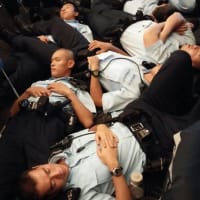
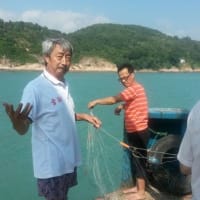
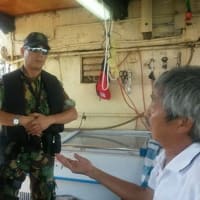
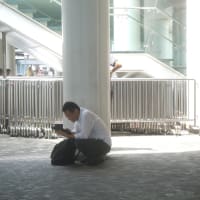
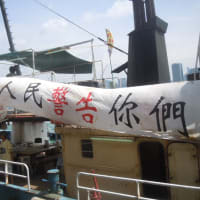
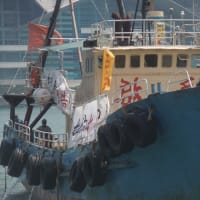
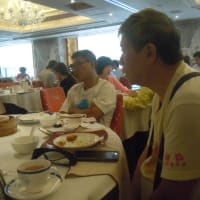
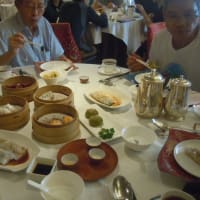
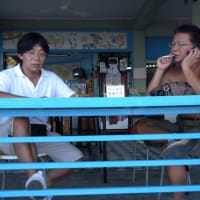
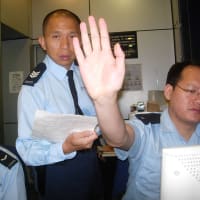
(South China Morning Post 2000.06.28 p.18 Analysis)
Willy Wo-Lap Lam
Overt interference? Apparently not. Indirect, subtle interference? Evidently so. Three years after the handover, the question of how to balance "one country" with "two systems" is far from settled. That Beijing is keen to have the ultimate say in Hong Kong's political development is clear from the meetings in Beijing last week between 30 SAR tycoons and the mainland leadership.
The crucial issue of a second term for Chief Executive Tung Chee-hwa, which had been decided in principle by senior Politburo members earlier this year, was finalised. According to official reports and some tycoons, President Jiang Zemin not only praised Mr Tung's performance but called upon the top businessmen to observe the "unity principle".
In the context of Beijing-Hong Kong relations, this means rallying behind the politician whom the leadership has painstakingly groomed since the early 1980s - Mr Tung. Despite the overall pro-Beijing image projected by SAR corporate chiefs, it is important to note that quite a number - including some of these 30 kingpins - are considered members of a "dump-Tung coalition". A major reason behind anti-Tung sentiment, according to coalition affiliates, is the Chief Executive's alleged favouritism towards a few tycooncs who are his long-standing supporters and former business partners.
While Mr Tung's term still has two years to run, the high-profile affirmation of his track record by Mr Jiang and Premier Zhu Rongji last Friday has silenced the opposition - and effectively given the former shipping magnate a mandate through to 2007. This is despite the fact that the composition of the Election Committee that will formally pick the next Chief Executive in 2002 has not even been determined.
According to a source familiar with Beijing's SAR policy-making, Mr Tung had, early this year, indicated to the leadership his desire for a second term. "Tung has pointed out that many of Hong Kong's post-handover problems stem from factors beyond his control, particularly the Asian financial crisis," the source said. "Tung has pledged to the Jiang leadership that, with the effect of the crisis wearing off, he can bring the SAR to greater glories in his second term."
The source said that despite Mr Tung's popularity having fallen to record low levels, Mr Jiang and his colleagues have expressed total trust in his ability. Since the spring, Beijing's Liaison Office in the SAR, formerly known as Xinhua, has orchestrated an elaborate campaign to bolster Mr Tung's status and image.
What made the tycoons with reservations about Mr Tung agree to Beijing's "unity" persuasion? Apart from not wanting to run foul of the powers that be, the major reason was the promise of unprecedented business opportunities after the mainland's accession to the World Trade Organisation (WTO). And while liberals may fault Beijing for undermining the principle of SAR autonomy by going all out to ensure a second term for Mr Tung, it will be hard for them to deny that the investment and other commercial prospects unveiled by the leadership last week would give the SAR ecoomy a lift.
"Politically, the tycoons were asked to observe the 'unity' principle through supporting Tung," said a source close to last week's meetings. "Economically, they were asked to bury their differences and jointly exploit post-WTO opportunities on the mainland." The source added that details of the goodies coming the SAR's way were spelled out in separate meetings chaired by ministerial-level cadres, such as planning chief Zeng Peiyan and the head of the Hong Kong and Macau Affairs Office, Liao Hui.
mainland projects."
It is understood that hints were given that, particularly in areas with national security implications, Beijing would rather hand lucrative deals to "patriotic" executives than foreigners. The only requirement is that the SAR tycoons work closely with state-owned enterprises - and that the former should unsparingly share their expertise with the latter. Moreover, suggestions were made to the corporate moguls that, in view of enhanced world competition, they should consider forming staretegic alliances among themselves - and to go after areas beyond property and other traditional sectors.
Veteran analysts of mainland-SAR dynamics have cited the public praise that cyber-mogul Richard Li Tzar-kai received from Mr Zhu, who called him "a rising star". They have compared the highly symbolical gesture to the famous handshake that Mr Jiang bestowed on Mr Tung during a SAR Preparatory Committee meeting in early 1996. The analysts said while Mr Zhu's unusual remark might not necessarily confirm speculation that Beijing had encouraged Mr Li's Pacific Century Cyberworks to take over Cable & Wireless HKT, it was a clear signal the leadership welcomed SAR tycoons to go unreservedly into telecommunications and other politically sensitive fields.
As for the much-ballyhooed go-west crusade, Beijing last week also pledged unrivalled opportunities for local business chiefs. One leading tycoon was told he would be given particularly favourable terms in exploiting petroleum and other natural resources in the western provinces.
Indeed, the extraordinary meetings at the Great Hall of the People said much about the future of mainland-SAR ties, even as they summed up the experience of the past three years. In the foreseeable future, Beijing will continue to take a patriarchal approach in making sure the SAR is run by patriotic, trusted politicians. The Democratic Party and other critics may decry the lack of representativeness of the 30 bigshots, which seems to be exacerbated by the fact that there are six father-son teams among them and that two of them are
brothers. However, it is in Beijing's interest to perpertuate the tycoons' overwhelming political clout.
Moreover, the Liaison Office and the Hong Kong and Macau Affairs Office, which play key united-front roles particularly regarding the SAR business community, will continue to help Beijing ensure that the SAR's political development will not go off track. This is despite the view of some that both institutions should be drastically scaled down, if not abolished, to minimise meddling in Hong Kong affairs.
Few, even among the puristic interpreters of the principle of a high autonomy for Hong Kong, would characterise the provision of lucrative contracts to the SAR corporations as "interference". Such supposedly economic matters, however, take on stark political overtones because of the strings attached.
SAR residents, however, have been soundly bludgeoned by the Asian financial crisis and economic woes such as unemployment, deflation and a topsy-turvy property market. Which leads to perhaps the most disturbing development since July 1, 1997: as livelihood-related uncertainties soar and the mainland's economic dependence on the motherland increases, more and more
SAR denizens are willing to acquiesce in the erosion of autonomy in return for at least the promise of material benefits. And as the economic boundaries between the mainland and Hong Kong become even more blurred post-WTO, the so-called sinicisation ofSAR politics also seems harder to avoid.
(SCMP 2000.06.29 p.17 Letters to the editor)
I refer to Willy Wo-Lap Lam's column headlined, "Marshalling the SAR's tycoons" (South China Morning Post, June 28).
My first reaction to the article is that it is absolute exaggeration and fabrication. Mr Lam this time has not only gone overboard, he has fallen into a trap of innuendo that is not supported by events. The article is full of distortions and speculation.
I was present during the meetings "the SAR tycoons" had with Planning Chief Zeng Peiyan, followed by meetings with President Jiang Zemin and later with Prime Minister Zhu Rongji. By the way, the day ended with a banquet given in
honour of the visiting "SAR tycoons" bi Vice-Premier Qian Qichen and Mrs Qian. What a pity Mr Lam did not further elaborate on other acts of connivance which took place during dinner.
The Post article implies that great conspiracies are afoot and that Hong Kong's businessmen are such idiots and morons that their only way of business survival is to become running dogs of the Chinese Central Government. Could it be that Mr Lam can't differentiate between colonical running dogs and ordinary businessmen who conduct their business in correct and proper ways?
The Post has more than once published articles written by journalists in which manifestations of patriotism to the motherland, especially by natives of Hong Kong, are regarded as something improper or even sinister. Why should this be so?
Kuok Hock Nien
Former Chairman
South China Morning Post (Holdings) Limited
I Can't Be Censored
とデカデカと書いていたのが胸にシみました。うう、ワタシも。
---
Don't worry Willy, at least it wasn't a dismissal letter
(iMail 2000.06.30 A17 Out to Lunch by Nury Vittachi)
The way things are done have changed dramatically at the South china Morning Post (slogan: "One of the world's newspapers"). The paper's former chairman, Robert Kuok Hock Nien, was deeply angered by an article written by one of its columnists. So he wrote a steaming letter to the newspaper's letters page, which was printed yesterday.
In it, he described China editor Willy Wo-lap Lam's column about the visit of a group of tycoons (which included Mr Kuok) to Beijing as "absolute exaggeration and fabrication". The article, he said, "is full of distortions and speculation".
The letter, printed yesterday, positively sizzles on the page. "The Post article implies that great conspiracies are afoot and that Hong Kong's businessmen are such idiots and morons that their only way of business survival is to become running dogs of the Chinese Central Government," Mr Kuok thunders.
How interesting that Mr Kuok reacts merely by expressing an alternative view. Your Humble Narrator cannot help but recall a series of incidents in 1997 when he, under the name of Lai See, also dared to criticise a pro-Beijing group which included Mr Kuok.
The then editor, Jonathan Fenby, told me with admirable frankness that Mr Kuok had ordered that I be dismissed immediately. The editor said he would fight for me to be retained, and would resign himself if I was not reinstated to my daily column. The management refused to reinstate this write - and the editor changed his mind about resigning.
I cleared my desk and went to see cartoonist Larry Feign - who had also been sacked from the Post for satirising Beijing.
Memo to Willy Lam: You may feel pretty bad about having been criticised in public. But take it from Larry and the present writer: You're having it easy.
---
Stating the facts
(SCMP 2000.06.30 p.15 Letters to the editor)
I refer to Kuok Hock Nien's letters of June 29 which takes issue with my column of the previous day.
I stand by the facts and opinions in my article.
Willy Wo-Lap Lam
翌7月1日には、林擁護のエミリー、郭おじさま擁護のナゾの人物2名の投書が仲良く載りました。
---
Differing opinions on column's criticism of 'tycoons'
(SCMP 2000.07.01 p.15 Letters to the editor)
We refer to the letter from Willy Wo-Lap Lam headlined, "Stating the facts" (South China Morning Post, June 30).
We were also present during the meetings and agree fully with Kuok Hock Nien's letter to these columns of June 29.
Mr Lam's column headlined, "Marshalling the SAR's tycoons" (Post, June 28), is full of distortions and speculation.
Ronnie Chan, Henry Cheng, Thomas Kwok, Walter Kwok, Vincent Lo, Robert Ng, Henry Tang
I refer to the letter written by the former chairman of South China Morning Post (Holdings) Limited, Kuok Hock Nien, headlined, "Speculation" (Post, June 29). The scathing condemnation of Willy Wo-Lap Lam is shocking and disturbing.
Mr Lam is highly respected both here and abroad for his insightful China coverage.
With unrivalled sources and strong analytical skills, Mr Lam's articles are widely read and quoted. Replying to his boss' rebuke, Mr Lam stood by the facts and opinions in his article of June 28.
Mr Kuok's outburst was intriguing and uncharacteristic since the low-key tycoon seldom expresses controversial views in public.
By venting his anger, Mr Kuok's message to the Post's journalists is clear. One reporter contacted me to express concern: "It appears Mr Kuok wants us to good-mouth China and to exercise more self-censorship." What has happened is
damaging not only for your newspaper but for the freedom of the press in Hong Kong. I just hope other news proprietors will not follow suit.
Emily Lau
Legislative Councillor
---
Differing opinions on column's criticism of 'tycoons'
(SCMP 2000.07.01 p.15 Letters to the editor)
I agree with Kuok Hock Nien (letter, Post, June 29), that the SAR tycoons invited to Beijng by China's leaders are not running dogs.
In fact, they can contribute a great deal to the prosperity of China.
However, Mr Kuok may not be aware that some of these tycoons are not knowledgeable about politics. They do not seem to know that the Chinese Government has violated human rights in Tibet, threatened to attack Taiwan and refused to apologise for the June 4 massacre in 1989.
I hope that businessmen in the SAR can acquire a better understanding of Chinese society, so they can express more constructive opinions when talking with Beijing's leaders.
Chris Tsang
Kowloon
「よっしゃイケイケ」てな勢いで郭元会長や一族を名指しで非難。SCMPしか読まないキドった読者はこの話、知らなかったかもしれない。
---
Seven tycoons bash columnist
(iMail 2000.07.03 A7)
By staff reporters
A newspaper columnist criticised by the owner for his reporting of the recent meeting between Beijing leaders and the heads of the business community has now been denounced by seven more tycoons.
Willy Wo-Lap Lam, the China editor of the South China Morning Post, whose column last Wednesday was entitled "Marshalling the SAR's tycoons", was accused by Robert Kuok Hock Nien of "absolute exaggeration and fabrication" in a letter to the paper published last Thursday.
Mr Kuok, a former chairman of the newspaper, is its controlling shareholder.
Lam replied on Friday that he stuck by the facts and opinions of the article, which suggested tycoons who wished to see Tung Chee-hwa serve only one term were brought into line by Beijing. They were asked to stand united for a second term for the Chief Executive as well as urged to join in the post-WTO opportunities offered by the mainland, he wrote.
However, in Saturday's Post, a host of business leaders lined up to criticise the journalist: Executive Councillor and garment tycoon Henry Tang Ying-yen; Hang Lung Group chairman Ronnie Chen Chi-chung; New World Development managing director Henry Cheng Kar-shun; Sun Hung Kai Properties chairman Walter Kwok Ping-sheung and his brother Thomas Kwok Ping-kwong, the vice-chairman; Shui On chairman Vincent Lo Hong-sui, and Sino Land chairman Robert Ng Chee-siong.
"Mr Lam's column ... is full of distortions and speculation," the tycoons wrote.
However, Post editor Robert Keatley insisted yesterday the letters would have no effect on editorial policy or Lam's job.
"(Lam) is a very important member of our staff, he will certainly continue to be our China editor," Keatley said.
He said Mr Kuok wanted to express his views and "we published it as we publish any letter".
The paper was pleased to receive different points of view on the matter. "Let the hundred flowers bloom, we like to have diversity on our paper," he said.
Mak Yin-ting, who chairs the Hong Kong Journalists Association, said Mr Kuok's action may put "unnecessary pressure" on the frontline journalists because of his position. But Mr Kuok had a right to express his views.
Legislator Emily Lau Wai-hing, convenor of The Frontier, said Mr Kuok's condemnation of Lam was "shocking and disturbing" not only to reporters of the Post, but also to the local media.
"By venting his anger, Mr Kuok's s message to the Post's journalists is clear," the former journalist wrote in a letter to the paper.
A Post reporter, who preferred to remain anonymous, said Mr Kuok's condemnation would only strengthen the paper's independent image.
"His action shows there is editorial independence in the newspaper", he said. "Otherwise, he would not have to write that letter."
This view was echoed by Lau Siu-kai, a professor at Chinese University, who said of Mr Kuok: "He is actually setting a good example by starting an open debate rather than doing something behind the scenes.
"Mr Kuok was commenting as a reader and a figure in the story to challenge Mr Lam's argument. So it is unavoidable that some people may think the former chairman was exerting pressure on editorial independence," Professor Lau said.
Ex-editor: Kuok told me to fire columnist
となっとるのが未練がましいiMailであった。
---
Ex-editor: Kuok told me to fire columnist
SCMP boss reveals orders to dismiss columnist for blasting pro-Beijing group
(iMail 2000.07.08 A5)
By a staff reporter
Former South China Morning Post editor Jonathan Fenby has revealed he was twice orderd by business tycoon and one-time chairman Robert Kuok Hock Nien to sack a columnist who criticised a pro-Beijing group.
The rvelations emerged in a letter to the Hong Kong iMail exactly a week after Mr Kuok, the controlling shareholder of the Post, publicly cautioned another of the newspaper's columnists in a letter to the editor.
Current editor Robert Keatley told the iMail Mr Kuok's letter would have no effect on Willy Wo-Lap Lam, the newspaper's China editor.
In his letter, Mr Kuok accused Lam of "absolute exaggeration and fabrication" in a column on June 28, headlined "Marshalling the SAR's tycoons", which Mr Kuok claimed was "full of distortions and speculation".
Mr Keatley said Mr Kuok had wanted to express his views and" we published it as we publish any letter".
It appears Lam was not the subject of a dismissal order - as was the case with former Post columnist Nury Vittachi, who under the name Lai See, dared to criticise a pro-Beijing group, which included Mr Kuok, in 1997.
In his letter to the iMail, Mr Fenby said Mr Kuok twice ordered Vittachi's dismissal. "I refused to do so - though my opinion of his Lai See column was falling week by week and we had lined up another journalist to take over from him," Mr Fenby wrote.
'Before this could happen, Mr Kuok again ordered his dismissal over a Lai See item suggesting that the Tung administration should put condoms on their heads because they acted like 'male appendages'.
"Again, I refused to sack Mr Vittachi, but implemented the planned Lai See switch."
Vitacchi is now an associate editor of the Hong Kong iMail.
In a new twist to Mr Kuok's public attack on the content of Lam's column, it is understood an adviser to Mr Kuok may have instigated the initial letter.
However, Thaddeus Beczak, who holds a number of management positions in the Kuok stable of companies, including executive director of Kerry Holdings Ltd and deputy chairman of South China Morning Post (Holdings) Limited, remained tight-lipped about his role. "I really can't comment", Mr Beczak, an American who used to work for J.P. Morgan, said. "I can't say yes or no."
Two days after the letter was published in Thursday, June 29, the Post ran comments from several business leaders who also lined up to criticise Lam who has stuck by the opinions and facts expressed in his column, which suggested tycoons who wished to see Chief Executive Tung Chee-hwa serve only one term were brought into line by Beijing.
---
Former editor tells of orders to sack writer
(iMail 2000.07.08 A18 Letters)
Nury Vittachi's tale of his martyrdom at the South China Morning Post (Dont worry Willy, at least it wasn't a dismissal letter, Hong Kong iMail, June 30) says he cleared his desk at the paper after a series of incidents in 1997 when he criticised a pro-Beijing group which included the paper's chairman at the time, Robert Kuok.
In fact, Mr Vittachi cleared his desk in 1999, not 1997. As for critical daring in 1997, Mr Vittachi took guidance from the Post management about his column, and sent me an unsolicited message saying he would be flexible.
Despite this, I was told twice to sack him. I refused to do so - though my opinion of his Lai See column was falling week by week and we had lined up another journalist who was to take over from him.
Before this could happen, Mr Kuok again ordered his dismissal over a Lai See item suggesting that the Tung administration should put condoms on their heads because they acted like male appendages. Again, I refused to sack Mr Vittachi, but implemented the planned Lai See switch.
Mr Vittachi says I told him I would resign if he did not get Lai See back, but then changed my mind. Since I had decided to take him off the column, any such threat would have been crazy. What I said was that I would put my job on the line to keep him on the staff.
I discussed another daily column with him, but management vetoed this. Mr Vittachi, himself, then suggested leaving the staff with a pay-off six times greater than his entitlement. After he had negotiated this with management, he signed a five-figure retainer contract with me to continue to write for the paper (from his uncleared newsroom desk).
Twenty months later, i June, 1999, he came into my office waving a copy of an email I had sent to a reader who had urged me to reinstate him at Lai See. My reply had explained why I would not do this.
Mr Vittachi said he now had to resign. I told him that was just as well since I was terminating his contract after learning that, while receiving his Post retainer, he had joined a workshop at the Hong Kong Standard on improving that paper. Mr Vittachi told me not to worry: even if the Standard improved 200 per cent, it would still be a crap paper. Later that week, he signed up to a senior position there.
Jonathan Fenby
Editor, South China Morning Post
1995-99